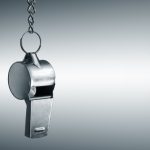Should the Child Sex Offender Register be Made Public?

For some people, no level of restrictions on those who have committed child sex offences can be too much. Many call for convicted child sex offenders to be shamed and persecuted for life, or worse.
But while public safety is an important concern, there must be a balance between protecting the community and allowing those who have served their time to move forward with their lived without the potentially counter-productive effects of lifelong stigmatization and vilification.
The Child Sex Offender Register
NSW has a register that records the details of people who have been convicted of sexual offences involving children.
Under the Child Protection (Offenders Registration) Act 2000 (the Act), anyone who has been sentenced for a ‘registerable offence’ will be added to the register.
Registerable offences are defined under section 3 of the Act. Ultimately, registerable offences are sorted into two categories: class 1 are the most serious offences, including persistent child sexual abuse, and class 2, which include kidnapping children. Acts of indecency against children and sexual offences against children overseas. Class 1 offences come with a longer reporting period.
But the register does not include those who are guilty but have escaped conviction, for example because the court has given them the benefit of a ‘section 10 dismissal or conditional release order’ which means guilty but no conviction recorded. It also excludes some offences where the offender was a child at the time they committed the offence. In addition, a person is not a registerable offender for an offence before 15 October 2001.
The register is not available to the public but can be used by police to monitor registered persons. However, the details of some child sex offenders have been made public on the ‘MAKO’ website.
When can a person’s name be removed from the register?
Generally, names on the Child Sex Offenders Register stay there permanently. They can only be removed in the following 3 situations:
If the finding of ‘guilty’ is quashed or set aside by a court;
The person’s sentence is altered so that the new sentence would not have made them a registerable person; or
A person is subject to a child protection registration order and this order is quashed on appeal.
What information is kept on the register?
The register keeps track of personal information about those convicted of a registerable offence. As well as basic details such as the name, date of birth and address of a person, the register also includes:
- The names and birth dates of any children who live with the offender;
- The nature of the persons employment, name of employer and address of the work premises;
- Details of any club or organisation the person is affiliated with, which has child membership or participation;
- The make, model, colour and registration number of any car owned or generally driven by the person;
- Any tattoos or distinguishing marks that the person has (including ones that have been removed);
- Whether the person has ever been found guilty of a registrable offence (or equivalent) in a foreign jurisdiction, or was subject to a corresponding child protection registration order
- If the person has been in government custody since they were sentenced or released in relation to the registrable offence, any details of where or when the custody occurred;
- If the person intends on leaving NSW more than once a month, they must specify the reason for travelling and the destination;
- Details of any carriage service that is used, or intended to be used, by the person (for example, telephone and Internet);
- Details of any internet service provider used or intended to be used by the person;
- Details of any Internet connection used or intended to be used, such as whether the connection is wireless, broadband, ADSL or broadband; and
- Details of any email addresses, Internet user names, instant messaging user names, chat room user names or any other name or identity used by the person to communicate through the Internet or other electronic communication service.
People who are on the register have the right to request a copy of all this reportable information.
What restrictions are placed on those listed on the register?
Those listed on the register have regular reporting obligations. They must report annually during their reporting period, and depending on the offence, the reporting period could range from eight years to the rest of their life.
They must also provide a large amount of personal information, right down to chat room names and passwords, and may even be required to provide fingerprints to police.
High-risk sex offenders may be supervised or even GPS monitored. NSW was the first state to introduce tracking devices for offenders in 2007, and the move has now been followed in other states.
ACT’s tough approach: calls for a public sex offender register
Extreme new laws being proposed in the ACT could mean that those found guilty of sex offences could have their names and photos made public, and have their homes subjected to random searches.
One of the proposed changes is that the Chief Police Officer would have permission to publish the identity of those guilty of sex offences, though their offences would not be listed.
And those who refuse to comply with search warrants could face up to five years’ imprisonment and fine of up to $75,000.
The power to search would extend to providing police with computer passwords and access to their mobile phones. Those who are on the list of registered offenders would also be required to register any modifications made to a vehicle that they own or drive. The laws will be put before the public before they go in front of the ACT Legislative Assembly.
While some argue that these tough new laws are necessary for the protection of the community, they raise important human rights concerns. Bar Association Vice President Ken Archer is one who disagrees with the proposals, saying that they would get rid of centuries of privacy protections. Archer also believes the laws could be used as stepping stones – while they may currently only target those who commit sexual offences, they could later be broadened to include more and more offences.
The ACT Attorney-General supports the proposed laws, stating that the amendments could allow police to monitor sex offenders better, but Archer believes the current laws allow for police to protect people without the need for such invasive and extreme measures.
Tim Vines from Civil Liberties Australia also disagrees with the new laws. He raises the point that ‘sex offenders’ are not a homogenous class. Those registered as sex offenders can include a whole range of people, from those found guilty of very serious offences, right down to underage teens who have been participants in the current sexting trends, unaware their actions constitute an offence that could put them on register.
Civil Liberties Australia believes that a balance between protecting the community and the rights of those found guilty of sex offences is important, and that the ACT proposals throw balance right out the window.






